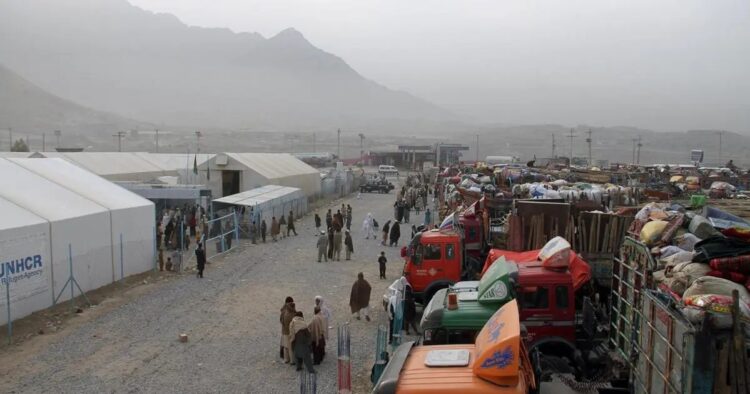KEY POINTS
- Pakistan shut the Attari-Wagah border on May 1, 2025, refusing entry to its cleared citizens.
- From 1971 to 2025, there are 15 documented cases where Pakistan refused to accept its own people or their bodies.
- Even after terror attacks and infiltration attempts, Pakistan often denies responsibility for its citizens involved.
Pakistan Closed the Door on Its Own Citizens. On May 1, 2025, something shocking happened at the Attari-Wagah border. Pakistan refused to allow entry to its own citizens who were cleared by Indian authorities to return home. Just days before, on April 22, a terrible terror attack took place in Pahalgam, Jammu & Kashmir, where 26 innocent lives were lost. In response, India ordered all Pakistani citizens with short-term visas to leave. But when some reached the border to return to their homeland, Pakistan shut the gates and left its own people stranded. This incident raised serious questions: If a country doesn’t take back its own people, what value does a ceasefire or diplomacy really hold?
This is not just one incident, there is a history of such cases. From 1971 to 2025, there have been several recorded incidents where Pakistan refused to accept its own citizens or even their dead bodies. Whether it was about infiltration, drug smuggling, terrorism, or simply visa violations, Pakistan has consistently denied its role and left its citizens to be buried by Indian authorities, sometimes without even proper identification.
April 2025: Pakistani Intruder Shot, Body Refused
On April 4, 2025, the BSF shot dead a Pakistani infiltrator in the R S Pura sector of Jammu. The man was around 35 years old. Even after confirming that he was from Pakistan, the Pakistan Rangers refused to take his body. Indian authorities had to bury the body according to Islamic rites, with help from local Muslims.
January 2022: Arnia Incident
In another case on January 4, 2022, a Pakistani intruder was shot dead by the BSF in Jammu’s Arnia town. He carried a COVID-19 vaccine certificate verified by Pakistani authorities and a sack marked “Karachi Fertilizers Company Limited.” But Pakistan still denied any connection and refused to accept the body.
September 2020: Drug Smugglers Shot in Rajasthan
Two Pakistani drug smugglers were shot dead by the BSF in the Anupgarh sector, Rajasthan. They were carrying 4 kg of heroin, pistols, and night-vision binoculars. One had a Pakistani ID card. Yet again, Pakistan disowned its citizens. Indian police had to bury the bodies in a local graveyard.
October 2019: Intruder Killed near Attari
Another Pakistani intruder named Gulnawaz was shot dead near the Attari border in Punjab. BSF found Pakistani currency, SIM cards, and other belongings clearly proving his identity. But even after flag meetings, Pakistan Rangers denied taking his body back.
August 2019: Pakistan’s Own Army Disowned
In a daring infiltration attempt by Pakistan’s Border Action Team (BAT) in J&K’s Keran sector, five to seven Pakistani intruders were killed by the Indian Army. India offered to return the bodies. Pakistan did not even acknowledge them. This showed not just refusal, but disrespect for their own armed men.
October 2018 and May 2018: Repeat Refusals
In the Sunderbani sector (2018) and Punjab’s Gatty Basoke (2018), intruders were killed, and Pakistan refused to accept responsibility. Despite the recovery of weapons and SIM cards, Pakistan called the dead “non-Pakistani,” even though proof said otherwise.
2017: Spy Refused After Conviction
In 2017, a Pakistani citizen, Sajid Munir, who had been in an Indian jail for spying since 2002, was not taken back after his release. He was caught with maps of sensitive installations and served a 12-year sentence in Bhopal. Even after all legal processes, Pakistan refused to acknowledge him.
1971 Bangladesh Agreement Breached
After the 1971 Liberation War, the 1974 agreement between India, Pakistan, and Bangladesh stated that Pakistan would take back its stranded citizens in Bangladesh. But even today, thousands of Urdu-speaking ‘Biharis’ still live in refugee camps, waiting for Pakistan to accept them. This is a betrayal of international commitments.
2009: Pakistan Refused to Accept 26/11 Terrorist Bodies
After the horrific 26/11 Mumbai attacks, India asked Pakistan to take back the bodies of the nine terrorists who were killed in gunfights. Pakistan flatly refused. These terrorists were proven to be Pakistani nationals. Their bodies remained in Indian mortuaries before being buried here.
2002: Refusal After Delhi Shootout
Two terrorists killed in a shootout in Delhi in 2002 were identified as Dawood from Kasoor and Ezaz from Gujranwala. Pakistan again denied their citizenship and refused to accept the bodies, which were later buried in India.
1999 Kargil War: Denial of Soldiers’ Bodies
Perhaps the most shameful chapter was after the Kargil War in 1999. Pakistan refused to take back the bodies of its own soldiers. The Indian Army, in full military tradition and respecting Islamic customs, buried 244 Pakistani soldiers. It wasn’t until 2024 that Pakistan’s army admitted its soldiers had died in Kargil.
Even Children Are Not Spared
On May 15, 2016, a 13-year-old Pakistani boy died of heatstroke near the Rajasthan border. His body was found on the Indian side. Even then, Pakistan refused to accept the body. The BSF had to bury him. What kind of country refuses a dead child?
Ceasefire Means Nothing If There’s No Humanity
India and Pakistan have had many ceasefire agreements. But what good is a ceasefire if Pakistan won’t even recognize its own citizens, alive or dead? These incidents show a clear pattern. Pakistan distances itself from any person who causes international embarrassment, even if that means denying identity, citizenship, or basic humanity.

















Comments